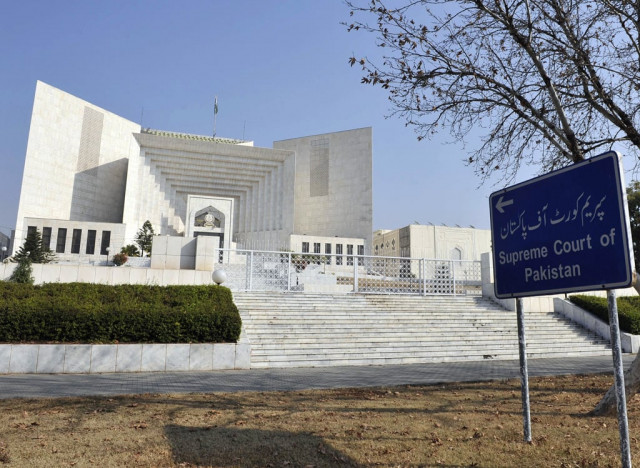Islamabad Declaration 2014: Jurists call for regulating suo motu powers
Judicial powers should not hamper executive polices.

A file photo of the Supreme Court. PHOTO: AFP/FILE
Jurists from across the world called for regulating the suo motu powers of the Supreme Court in order to ensure that the “exercise of judicial power neither hampers nor stunts executive policies”.
“The exercise of suo motu jurisdiction by the Supreme Court may be duly structured and regulated by the court and the principle of trichotomy of powers enshrined in the Constitution be respected,” stated the declaration issued at the end of two-day International Judicial Conference 2014 on Saturday.
The declaration, which was read out by Chief Justice Tassaduq Hussain Jilani, said the judiciary, ‘not just in Pakistan, but all over the world’, strived to establish constitutionalism by the powers of judicial review.
“This places a rational limit over the decisions and actions of other organs of the state and this spirit must be maintained and kept alive,” it said. The declaration added that the “sanctity of people’s trust in legislature must be kept in mind while seeking judicial review of legislative instruments”.
The declaration said the superior courts should not exercise a ‘roving and supervisory role’. “They shall exercise their jurisdiction in such a way that they are not overburdened with civil and political claims.”
The declaration also said the courts must promote a culture of tolerance and be sensitive to social, ethnic and gender backgrounds of the parties that approach them.
“Judicial training be imparted to officers to sensitise them to the biases and prejudices plaguing the society. It is recommended that rights for protection of minorities must be effectively enforced,” it stated.
Published in The Express Tribune, April 20th, 2014.



















COMMENTS
Comments are moderated and generally will be posted if they are on-topic and not abusive.
For more information, please see our Comments FAQ